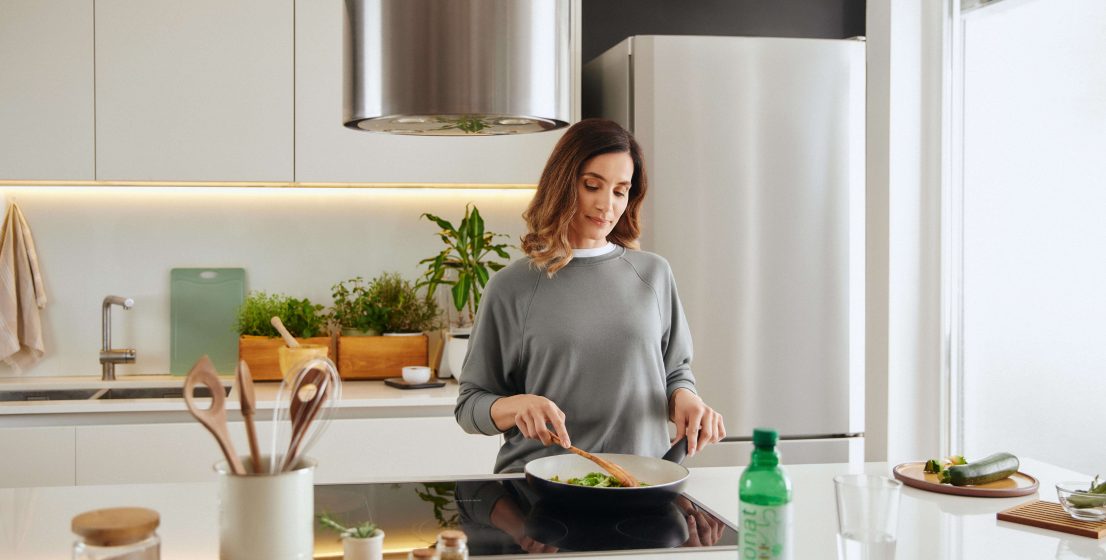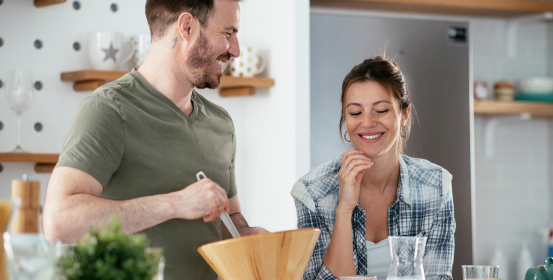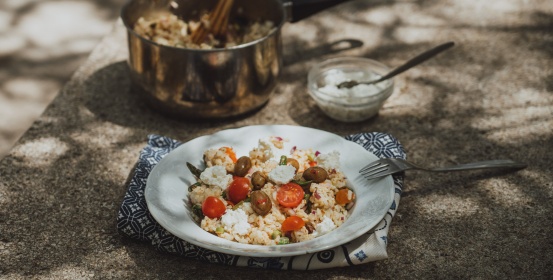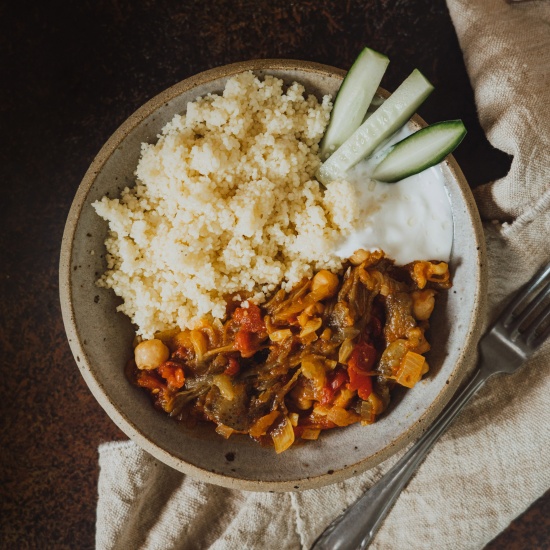Yes, the struggle is real. It doesn’t matter if it strikes you once in a while or if it’s an ongoing health issue – constipation feels awful and is a serious threat to our health and wellbeing. However, if you suffer because of unsuccessful visit to the toilet you don’t need to despair or run to the nearest pharmacy to stock up on laxatives and other medications. There are several completely natural tricks that will efficiently and effectively eliminate the symptoms of constipation and make you feel awesome again. You might already know some of them from our previous article on slow digestion, while some new additions might surprise you…
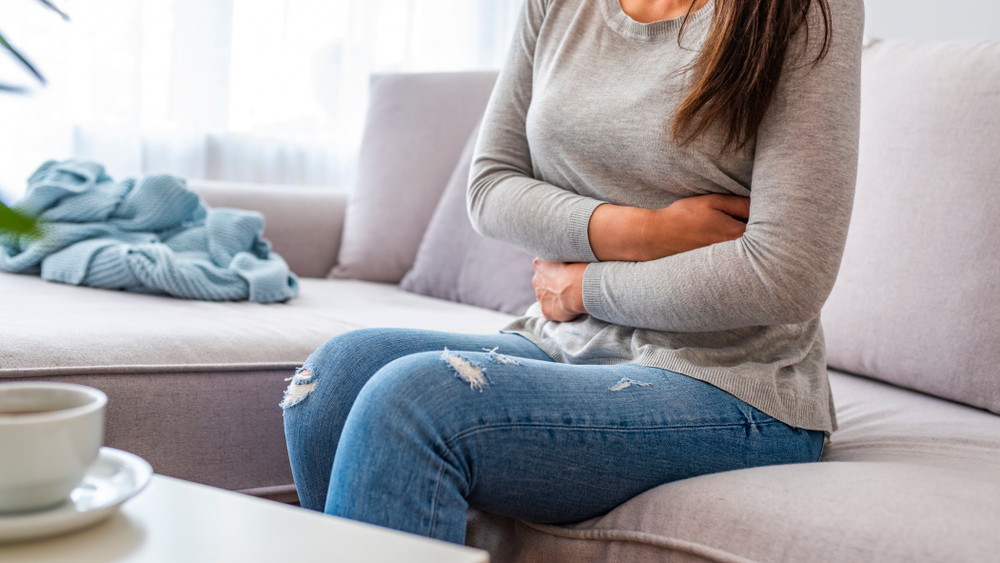
Let’s meet the enemy: constipation 101
Let’s first briefly see what exactly the term constipation means and what causes this uncomfortable problem. According to a widely accepted definition, it can be characterized as a condition in which a patient does not have more than three stools per week. Besides that, the stools are dry and hard, which makes the defecation difficult and painful. One of the most common reasons for this problem could be lack of water in the stool which is a consequence of insufficient intake of liquids. Constipation can also be a consequence of unhealthy eating habits when our digestion is poor in fiber. Very often lack of exercise and physical activity also lead to constipation, including exposure to stress and even some medications that we take to treat other health problems.
The most common constipation symptoms involve bloating and abdominal pain, severe discomfort when going to the toilet, the feeling as if the intestine has not been emptied and even vomiting. Due to the stool being hard to pass, constipation can also result in other issues, such as haemorrhoids.
If you strain too much during bowel movements or spend a lot of time on the toilet, the veins in your anus and lower rectum are more likely to become swollen, which is a major reason for irritation as well as pain and discomfort in your anal region. Therefore, both constipation and haemorrhoids can be treated at the same time by smoothing the way for waste to travel out of the body without issues.
If untreated, severe constipation not only has a negative impact on the quality of life, but can also deteriorate our physical and mental health. Therefore, everyone must know the tricks that make going to the toilet a bit smoother. Luckily, there are several methods of achieving this goal, and many do not require special knowledge but only food items that are already in most households. Let’s take a closer look.
Hydration is Key While Mineral Water is Your Best Friend
While regularly drinking too little is a sure-fire way to the land of constipation, researchers have found that even a mild case of dehydration can shut your bowels down pretty quickly. And considering the percentage of water our bodies are made of, it only makes sense that a lack of fluid will make it difficult for waste to pass through them. This happens as the body absorbs water from the food that travels through the digestive system. However, if you stay hydrated then your body will not need to collect water from your waste. This way, you will make your stool softer and bulkier, thus allowing smooth passage on the way out.
Besides water (perhaps with some lemon) or unsweetened mint tea, sparkling water can be your best ally in fighting severe constipation symptoms. Research shows that in this regard it is even more effective than normal tap water, especially for those suffering from conditions such as chronic constipation or irritable bowel syndrome.
This is especially true in the case of Donat, a natural mineral water with scientifically proven benefits for healthy digestion. Its secret lies in the power of osmotic action. The sulphate ions draw water from the intestinal wall, thus increasing the volume of the intestinal content. The result is more pressure on the intestinal wall, which is combined with the relaxing effect of magnesium to get things moving. Want to find out even more about Donat? Click here and discover the power of this incredible natural mineral water. And don’t forget to read all about its special properties.

Hot Water can Also Save Your Gut
If feeling constipated results in symptoms like cramping, bloating and stomach pain, a heating pad or even just a hot water bottle can also provide help. That’s right – this is not just a way of relieving period pain. As heat has a soothing effect, curling up under a quilt with a heating pad or something similar between your stomach and your legs can help your muscles to relax. While you should be careful and avoid burning yourself, heating your gut up can make your next bathroom session that much easier.
Have You Thought About Alternatives to Milk or Lactose-Free Cow’s Milk?
It’s not uncommon for lactose-intolerant people to experience constipation, but dairy products can also do harm to everyone else as they can irritate the digestive tract. Doctors attribute this issue to a lack of enzymes that are responsible for breaking down lactose. Many people do not have them, and thus suffer from issues like severe constipation, bloating or even diarrhoea if they eat dairy.
Another issue is that often we don’t even realise how much milk we consume in just one day. For many, it already starts with a morning coffee and continues with snacks or desserts. If you think that milk makes you constipated, you might want to temporarily cut it from your diet to see how the body will respond. There are also many alternatives that you can try, like lactose-free cow’s milk or some of the plant-based alternatives, like oat or almond milk. But don’t jump to conclusions too quickly. Some dairy products, like yoghurt, contain probiotics that will also benefit your gut! Fermented dairy products also contain much less lactose than milk.
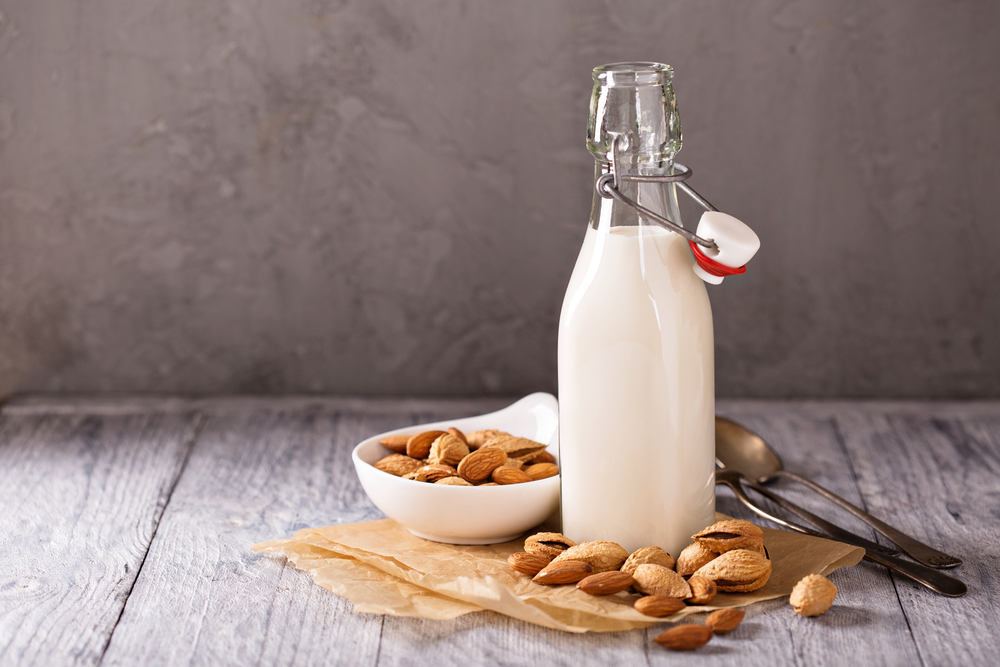
Probiotic food for regular digestion
If you suffer from chronic constipation, one of the reasons might also lie in the bacterial imbalance in your gut. This unpleasant condition can be caused by several factors, such as:
- unavoidable exposure to stress,
- a poor and unbalanced diet,
- physical and mental exhaustion,
- chronic medical conditions, and
- medications, especially antibiotics.
All these factors can increase the levels of „bad „bacteria, which, besides constipation, leads to some health problems, such as bloating, lack of vitamins and minerals, and even weakening of the immune system.
However, probiotics can help us a lot in keeping balance in the intestines. They are living microorganisms, i.e. bacteria that can be found in fermented food, such as milk, fresh cheese or yogurt, as well as sauerkraut or kombucha. Probiotic bacteria stick to the walls of our digestive tract where they reproduce and push out harmful bacteria and viruses.
At the same time, they help in food digestion and absorption of nutrients into the intestines and thereby alleviate digestive issues and reduce bloating. Would you like to find out more about them? Then definitely read this article too!
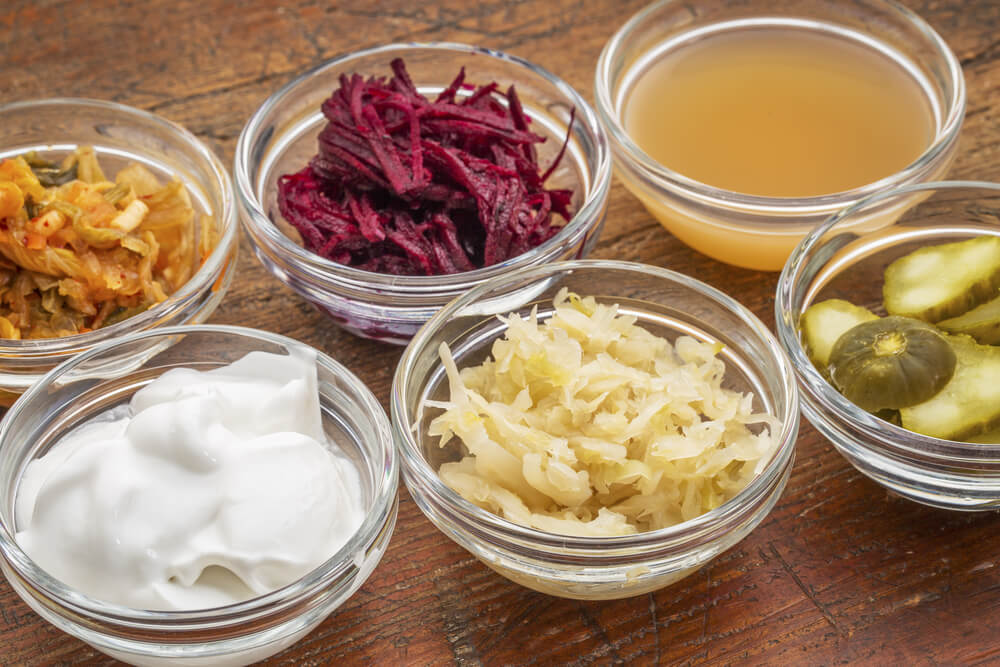
Fight against constipation with a diet rich in fiber and some foodstuffs that will surprise you
We have already talked about the benefits of replacing processed, sweet, and salty heavy food and fatty meals with a balanced diet rich in fiber that consists of wholegrain cereals, vegetables, and nuts. Healthy diet is the basis of the fight against indigestion and uncomfortable constipation symptoms because none of the tricks from this list will not give perfect results without paying special attention to diet.
By consuming a lot of fiber, you will improve the volume of the stool and soften it, which will help it move easily through the digestive tract. However, some recent studies have not given uniformed results regarding the overall role of fiber in regulation of constipation. Some claim that overdoing with diet rich in fiber the things can actually get worse and that the type of fiber also can have a significant impact. As a rule, the best is to combine soluble and insoluble fiber and stick to the quantity of approximately 14 grams of fiber per 1000 calories (or around 30 g of fiber per day).
And what’s the difference between soluble and insoluble fiber? Fiber is soluble if it melts in water. Such fiber can be mostly found in oats, beans and peas, barley and apples and citruses. Such fiber keeps the viscosity of intestinal contents, and at the same time lowers the level of sugar and glucose in blood.
Insoluble fiber, just as its name suggests, does not dissolve in water, and it is mostly found in wholegrain flour, nuts, wheat bran and in some kinds of vegetables, such as potatoes. Since it increases the quantity of stool, it accelerates the food transit through our digestive tract, and is therefore extremely important for those with slower or irregular digestion.
However, you mustn’t forget one important thing – if you want to increase your daily intake of fiber, you have to do it gradually, or else you might aggravate the symptoms. Besides such diet, there are also some other foodstuffs that will do wonders for your stool. Maybe some of the things mentioned below will not seem logic to you, but we bet that some of them will surprise you.
Sesame seeds
Having a high oil content, sesame seeds are among the greatest constipation remedies out there. By moisturising the gastrointestinal tract, they make passing a dry stool much easier. They are a great addition to various salads, while you can also grind them and use them for decoration or even seasoning. Set your imagination free and relieve constipation at the same time.
Olive oil
Just like sesame seeds, this can help moisturize the intestines. As it contains healthy fats, you can even treat yourself to a tasty olive oil dressing if you’re trying to lose weight. Your body needs healthy fats and your gut will thank you for it.
Castor oil
It might taste awful, but castor oil has long been known as a home remedy for poor digestion. As it stimulates the large as well as small intestine, a teaspoon on an empty stomach can provide relief in a very short time. However, bear in mind that castor oil isn’t for everyone, as it’s not recommended for pregnant women and people with certain health conditions. In addition to having an unpleasant taste, drinking castor oil can have a few unwanted side effects. Like other stimulant laxatives, it can cause cramping and diarrhea. What is more, it can also reduce the absorption of nutrients in your intestines. Therefore, some caution is needed if you choose this remedy.
Avocados
Combining olive oil and some avocado in a healthy salad makes this super fruit a winner for general health and speedy digestion.
Ginger and mint
While the menthol in peppermint is known to relax the muscles, ginger will heat the bowels up, thus speeding up the digestive process. Use these two ingredients in a tea, so that hot water makes the end result even better.
Dandelion tea
This known to have a laxative effect, albeit a mild one. Use the root of the herb and drink several times per day to get results.
Coffee
While warm water with some lemon juice or a nice cup of herbal tea can also do the job, many people feel the urge to go to the toilet shortly after they’ve had their morning cup of coffee. Although medical professionals will generally not recommend drinking gallons of coffee, studies do show that this popular drink can stimulate your gut almost as efficiently as a proper meal, and can have a stronger laxative effect than water or tea.
Prunes
This delicious and healthy treat is recognised by doctors as a way regulating digestion. Along with a high fibre content, prunes also contain a compound that’s responsible for triggering the contraction of your intestines. Do you know which other dried fruit has a similar effect? Raisins!
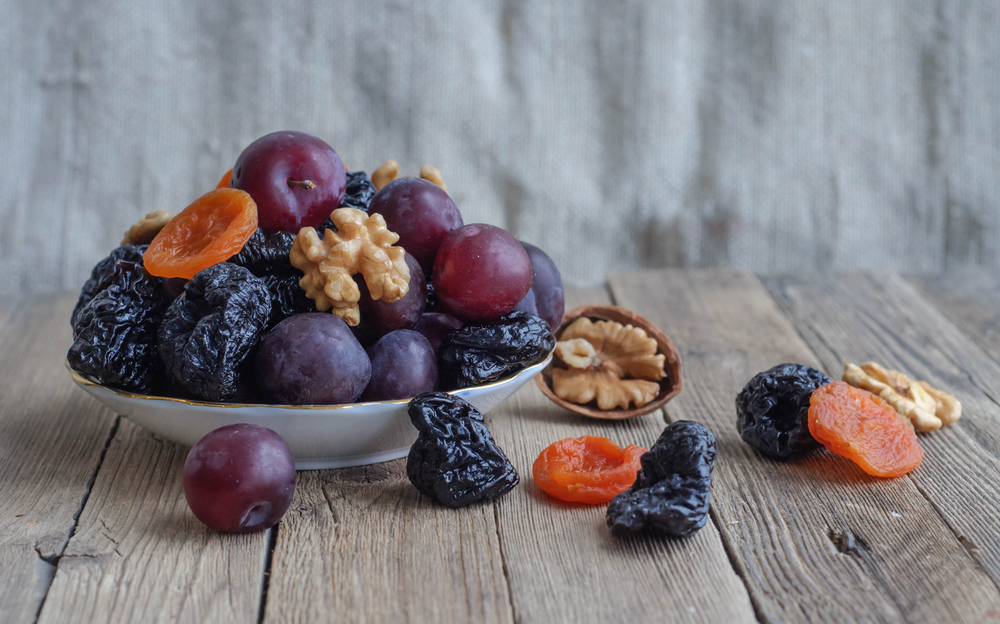
Relax, Listen to Your Body and Let It Do Its Thing
If you are used to rushing around your daily chores without taking enough time for peaceful and relaxed visits to the bathroom, then you’re not doing yourself any favours. Besides enabling your body to extract waste in peace, turning bowel movements into scheduled routines might also be beneficial. Just go to the toilet and gently try to convince the body to do its thing. Shortly after breakfast might be a great time to do this. You can even use a little trick to help the stool pass through the body with ease. Try to place your feet on a box or similar object so that your knees sit higher than your hips. This is a natural position that everyone should poop in.
And if you feel the urge, don’t just ignore it and carry on with your day. If you regularly hold your poop in, you might weaken the muscles responsible for controlling the bowels, thus causing constipation later in life.
Move Your Body and Your Bowels Will Move With It
Overcoming slow digestion and constipation with exercise is a healthy way of speeding things up in your gut. When you move, you also activate the muscle activity in your intestines, giving them the strength needed to push the stool through and out of your system. Doctors suggest at least half an hour of light physical activity a day, which can mean walking up a few flights of stairs, taking the dog out for a walk or jogging around the block. Anything you can do to move your bowels is better than maintaining a sedentary lifestyle and turning into a couch potato.
And if you really want to speed things up in the bathroom, you can even visit a gym or learn some yoga tricks. Scientists say that such movements resemble those of your bowels when extracting waste, and this is why some athletes feel an urge to run to the bathroom as soon as their training is over. But while becoming more active is a good thing, you need to make sure that you also drink enough water!

What About Women and Constipation in Pregnancy?
Researchers say that apart from people of lower socioeconomic status, who cannot afford nutritious, fibre-rich foods, women are the most frequent victims of slow digestion and constipation. They assume that this is due to the food travelling more slowly through their intestines, as well as the effects of female hormones on the digestive tract. This is why a healthy, fibre-heavy diet, regular exercise and proper hydration are especially important for women.
Another big issue for the female population is constipation in pregnancy, which is, at least in part, also caused by hormones. Due to progesterone, the bowel muscles tend to relax and accept more food, thus creating what one could describe as a digestive jam. On the other hand, the expansion of the uterus means less space for the bowels, which hinder their activities. If you are expecting a child, it is therefore vital to resist things like refined grains and processed foods while also avoiding overeating. The key is in eating several smaller meals as well as in listening to your body and going to the toilet as soon as you feel the urge. Kegel exercises and similar activities also work against constipation during pregnancy.

And Constipation in the Elderly?
Visits to the bathroom that are accompanied by discomfort and pain are also a regular issue for seniors. However, constipation in the elderly is often not a direct consequence of aging, but a result of other factors like the effects of medication. What’s more, non-cooperative intestines are often related to with other conditions, like having a tumour, low thyroid or even Parkinson’s, while aging can also prevent people from moving or exercising, thus additionally slowing down the gastrointestinal tract.
And how do elderly people avoid being constipated? The focus should be on avoiding refined grains such as white rice or consuming too much dairy products, while enjoying whole-grain foods, generous servings of vegetables, nuts and as much exercise as possible. It’s also a good idea to discuss the side-effects of any medications or supplements with doctors to find the best solutions for a healthy digestive system.
Sometimes, Visiting the Doctor Works Best…
While constipation is often caused by some rather unfortunate lifestyle choices and can be remedied with simple and, above all, natural tricks, it can also be related to more complex medical issues that healthy eating and exercise cannot deal with. If you suspect that in your case the inability to poop more than two or three times per week might be caused by a more serious issue, then it’s best to call your doctor. This is especially true if you experience regular abdominal pains, if you find some blood in your stool, or if you have lost a considerable amount of weight, as our home remedies probably won’t solve the problem and you need to seek proper medical treatment. As always, it’s important to take care of your health and pay attention to sudden changes in order to be able to act in good time.
Frequently asked questions
What are the most common causes of constipation?
Constipation is mostly caused by imbalanced diet with not enough fiber and liquids, and it is also prompted by lack of physical activity, stress and certain medications.
Which food is rich in probiotics?
Probiotics can be found in fermented food, such as kefir, fresh cheese, or yogurt, as well as in sauerkraut or kombucha.
Which food helps prevent constipation?
Food rich in fiber, as well as some less common foodstuffs, such as avocado, Ricinus oil, ginger, mint, coffee, tea, plums, etc. which help in prevention of constipation.
What could be more serious consequences of constipation?
Constipation is connected to hard, painful defecation, but it can also have more serious consequences on our health and wellbeing. 80 % of immune cells are in the intestines so it is obvious that incorrect functioning of digestive tract can also impact our immune resistance.
Why is natural mineral water Donat so efficient in constipation?
Donat is known for an above-average combination of minerals, especially sulphates and magnesium. It works on the principle of osmosis, where sulphates absorb water from the intestine wall and increase the volume of intestine content. Magnesium at the same time relaxes the muscles and additionally accelerates peristalsis.
Would you like to effectively eliminate constipation with the help of Donat?
Choose chapter:



